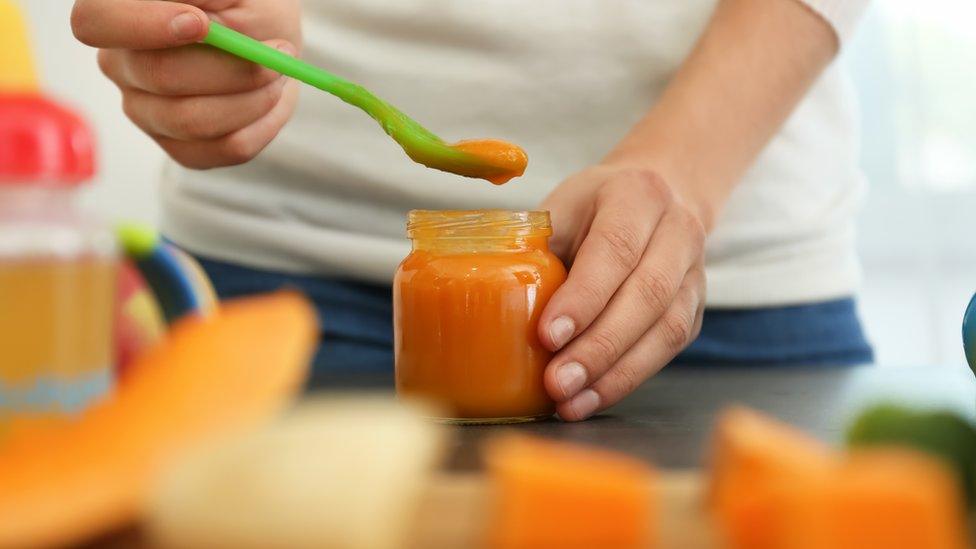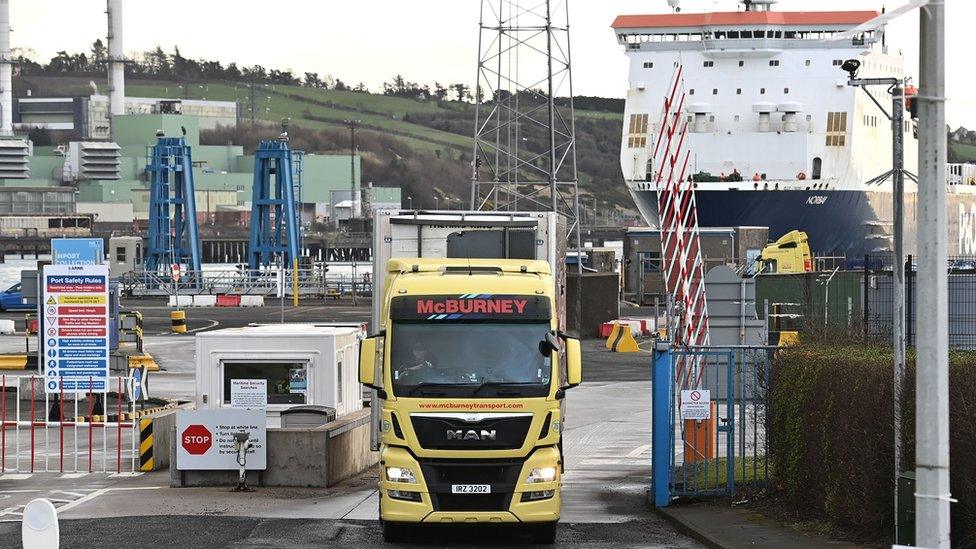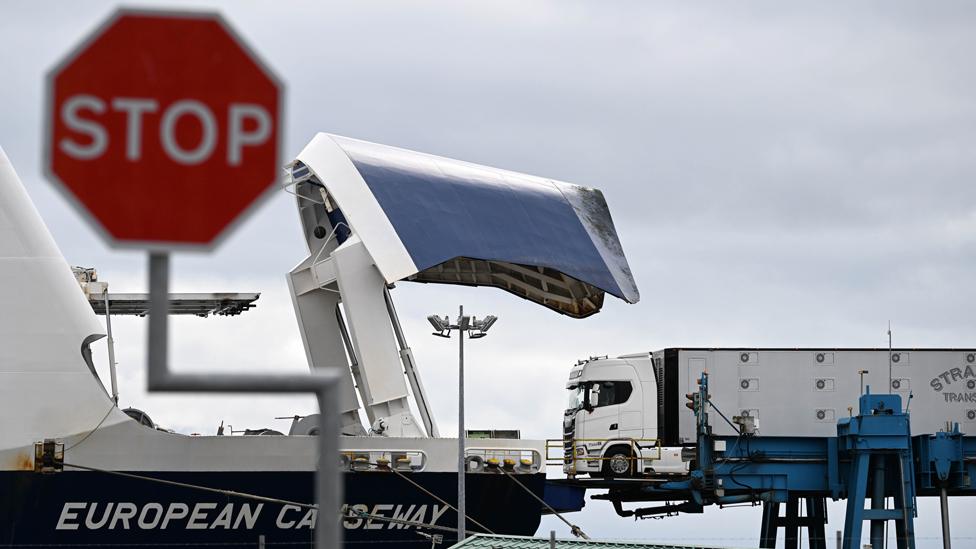Windsor Framework: NI will not follow EU on arsenic levels in baby food
- Published

The EU has recently amended its regulation to further cut the amount of arsenic allowed in baby foods
New EU rules on food safety have highlighted how the Windsor Framework will change the operation of the Northern Ireland Protocol.
The rule change, which concerns permitted levels of arsenic in baby food, was first reported by the Financial Times., external
Arsenic is a naturally occurring substance that can cause cancer.
It is impossible to eliminate arsenic from food but there are maximum legal levels.
There are also stricter rules in place for foods intended for young children.
The EU has recently amended its regulation to further cut the amount of arsenic allowed in baby foods.
Under the original protocol, GB-produced goods which did not meet this standard would have faced being banned from sale in Northern Ireland.
However, a major change in the Windsor Framework is that UK public health and safety standards will apply to all retail food and drink being sold in the UK internal market.
That means that GB-produced baby foods, with higher arsenic residues than the EU permits, will still be eligible for sale in Northern Ireland.
To prevent Great Britain-standard products leaking into the EU market 'Not for EU' labels will have to be added to the GB products; a requirement to be phased in over the next two years.
The UK government is emphasising that these GB-produced products are still safe and has not ruled out adjusting its rules so they are similar to the EU.

If NI producers want to sell their goods in the EU they will still have to follow EU standards
A spokesperson said: "The UK will always maintain strong rules on arsenic levels, and keep our position under very close review.
"We work closely with regulators across Europe and the rest of the world to ensure that we take account of global best practice and prioritise safety for our citizens."
But the change also highlights potential competition issues for Northern Ireland producers and manufacturers.
If Northern Ireland producers want to sell their products into the EU they will obviously have to follow EU standards.
But an academic analysis of the Windsor Framework suggests that Northern Ireland producers will also be bound by EU standards even if they only intend to sell their products in NI or GB.
'Competitive disadvantage'
Queen's University academics Viviane Gravey and Lisa Claire Whitten have been poring over the framework texts,, external including a draft decision by the Joint Committee - the body that oversees the deal.
They say that for agri-food goods coming into Northern Ireland from Great Britain and entering under the so-called 'green lane' procedure, UK food safety standards will apply.
Their initial reading of the relevant draft Joint Committee decision is that this roll back of EU law only applies to goods entering Northern Ireland and will not apply to NI producers.
They conclude "there is a risk therefore that NI producers are put at a competitive disadvantage in their own markets", if goods entering from Great Britain and sold in Northern Ireland do not need to comply with "regulatory standards of EU law that still apply in Northern Ireland".
This would also seem to be confirmed in the UK command paper, which says that those rules which continue to apply "are applied to goods produced in Northern Ireland".
But does this actually matter in practice?
The command paper says Northern Ireland businesses understood this and wanted it as it means they "maintain maximum market access" to the EU single market.
On agri-food in particular, the command paper says the EU rules "reflect longstanding arrangements" and protect the integrated supply chains on which many industries rely, wherever they sell their goods.
It's understood that in the case of the arsenic rules, the government does not believe that the new EU rules will have any material impact on the production of baby food in Northern Ireland.
It's also important to note that should a situation develop where UK standards are higher than EU standards, Northern Ireland producers will still be able to sell their products in Great Britain.
This is due to the market access principle in the UK Internal Market Act.
It means that goods made in one UK jurisdiction can be sold in another, even if rules differ across the different nations.
The command paper explains the principle: "If the Northern Ireland Assembly chose to adopt a new EU regulation on food health standards... then producers could still sell that good across the UK because of the unfettered access guarantees that UK law already secures."
Related topics
- Published9 March 2023

- Published28 February 2023

- Published28 February 2023

- Published28 February 2023
